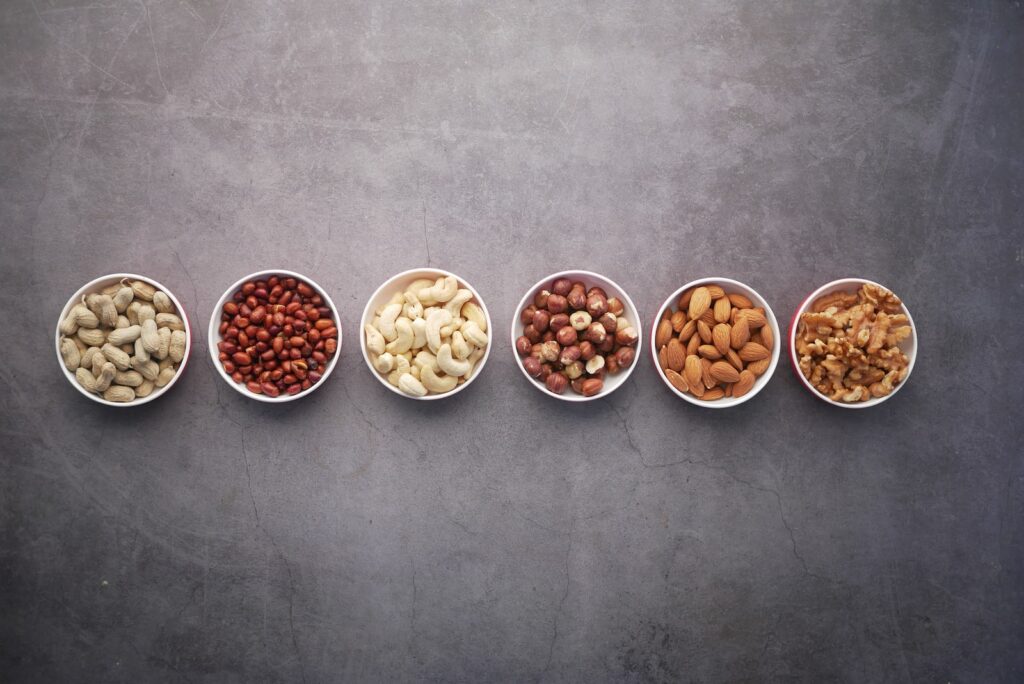
Your body will do whatever it needs to take care of your baby, including stealing. Your body actually takes calcium from your own bones to give it to your little one. So if you want your bones to stay strong, you need to get extra calcium while your baby’s growing inside you.
What Calcium Does for You?
Everyone needs this essential mineral each day. Besides building bones, calcium also keeps your blood and muscles moving and helps your nerves send messages from your brain to the rest of your body.
Calcium Needs During Pregnancy
Your body can’t make calcium, so you need to get it from food or supplements. While you’re pregnant, try to get at least 1,000 mg of calcium every day. If you’re 18 or younger, then you need at least 1,300 mg of calcium every day.
Foods High in Calcium
Dairy foods such as milk, cheese, and yogurt are some of the best sources of calcium. Dark, leafy green vegetables also have calcium but in much smaller amounts.
Some foods have calcium added to them, including calcium-fortified cereal, bread, orange juice, and soy drinks. Check food labels to know for sure.
There are plenty of calcium-rich foods for you to choose from:
1.) MILK- 1 Cup: 280 mg of calcium
When we think about calcium, the first source that comes to our mind is milk. Easily digestible and absorbable, milk is one of the best high calcium foods. An amazing vehicle for building bones from childhood to adulthood, a cup of milk includes 280 mg of calcium of the recommended 1000 mg.
2) ORANGE – 1 Orange: 60 mg of calcium
We all know orange helps in boosting our immune system. And this magical fruit is also in the list of high calcium foods with vitamin D, which is crucial for absorption of calcium in the body. One medium size of orange contains 60 mg of calcium.
3) INDIAN OIL SARDINES (Mathi/Challa/Taarli) – 1 Cup: 569 mg of calcium
Listed in the foods rich in calcium, Sardines are a great option. If you are a non-vegetarian,it is just what you need. These little salty fishes can add an amazing umami flavour to pastas and salads.
4) SOY MILK – 1 Cup Milk: 60 mg of calcium
It’s a myth that only dairy products contain calcium. Non-dairy products like fortified soy milk can be amazing high calcium foods and provide both calcium and vitamin D.
5) ALMONDS – 1 Cup(roasted): 457 mg of calcium
With a stupendous 457 mg of calcium, almonds top the list of high calcium foods. High on proteins as well, these nuts also helps in reducing the risk of heart disease. Also, almonds are an amazing source for improving your memory. Having some of these protein rich nuts every morning will be a sure win-win for your health.
6) BOK CHOY – 1 Cup: 74 mg of calcium
Every non-dairy calcium source list is incomplete without this leafy vegetable called Bok Choy. Also called as Chinese Cabbage, a cup of shredded bok choy provides 74 mg of calcium and just 9 calories. Loaded with vitamins like A and C, it is easy to cook and is available all round the year.
7) FIGS – 1 Cup(dried): 242 mg of calcium
Indulge in this sweet dessert-like fruit loaded with fibre and potassium. With a whopping 242 mg of calcium per 1 cup of dried fig, this sticky fruit helps in strengthening your bones. Also loaded with magnesium, this fruit helps in keeping the heart beat steady and maintaining muscle function. It stands a strong position in the list of foods rich in calcium.
8) YOGHURT – 1 Serving: 400 mg of calcium
Available in various flavours, yoghurt is a dairy product which contains healthy bacteria for your gut. With 400 mg of calcium in a single serving , this protein-rich diet is an amazing substitute to milk.
9) CHEESE – 1 Cup(diced): 951 mg of calcium
Another addition to the list of foods rich in calcium, cheese is a great source of protein as well as calcium. A must have ingredient for a variety of snacks, consumption of cheese is as easy as a pie.
10) GREEN LEAFY VEGETABLE – 1 Bunch: 336 mg of calcium
High in dietary fibre, green leafy vegetables are one of the high calcium foods. With a number of options like spinach, kale, celery and broccoli, these veggies are also rich in potassium and magnesium.
What to Know About Calcium Supplements
If you’re allergic to milk, are lactose intolerant, or are vegan, getting enough calcium from food can be difficult. If you don’t get enough from food, your doctor may recommend a calcium supplement.
Pick the type that works for you. Calcium supplements come in two forms: carbonate and citrate.
- Calcium carbonate is less expensive and works best if you take it with food.
- Calcium citrate works just as well with food or on an empty stomach.
Many calcium supplements also contain vitamin D, which helps your body absorb calcium.
Limit to 500 mg at a time. To make sure your body absorbs the most calcium possible, take only 500 mg of calcium at a time. For example, this might mean taking a 500 mg supplement with breakfast and another with dinner.
Breastfeeding needs more calcium, too. You need to continue calcium supplements while you’re breastfeeding. Research shows you may lose 3% to 5% of your bone mass when you nurse because you lose some of your calcium through breast milk. Luckily, if you are careful to eat foods with calcium and take supplements as advised, you should regain that bone mass within 6 months after you stop breastfeeding.
Potential side effects: Supplements may make you feel bloated, gassy, or constipated. If they do, try taking the calcium supplement with food. Or talk with your doctor about taking a different type or brand of calcium supplement.
Too much calcium may cause kidney stones and prevent your body from absorbing zinc and iron, which you need to stay healthy. While you’re pregnant, don’t take more than 2,500 mg of calcium each day (3,000 mg if you’re 18 or younger). If you’re concerned you might be getting too much calcium, talk with your doctor before you make any changes.

